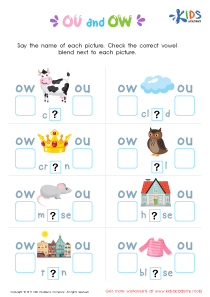Phonics Skills Long And Short Vowel Worksheets for Ages 7-8
6 filtered results
-
From - To
Enhance your child's reading abilities with our Phonics Skills Long and Short Vowel Worksheets, crafted for children ages 7-8. These engaging and interactive exercises are designed to help young learners distinguish between long and short vowel sounds, boosting their phonics proficiency. With a variety of fun activities, kids will build a strong foundation in vowel recognition, spelling, and pronunciation. Ideal for both classroom and home use, our worksheets provide structured practice that promotes confidence and improves literacy skills. Support your child's phonics journey today and watch them become more effective and enthusiastic readers!
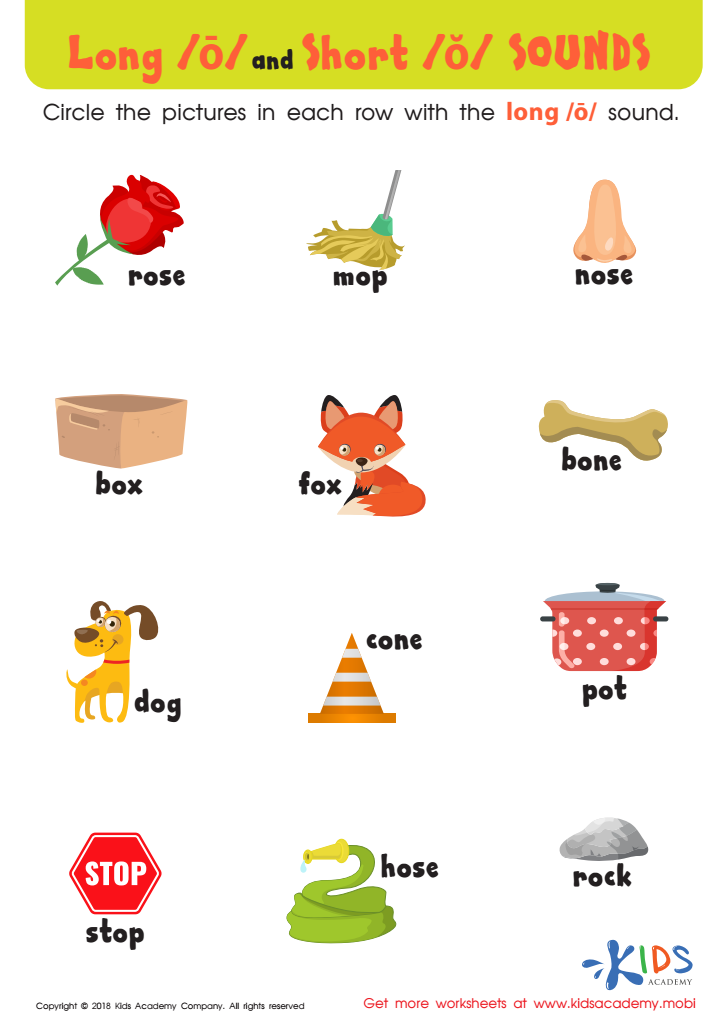

Reading: Long O and Short O Sounds Worksheet
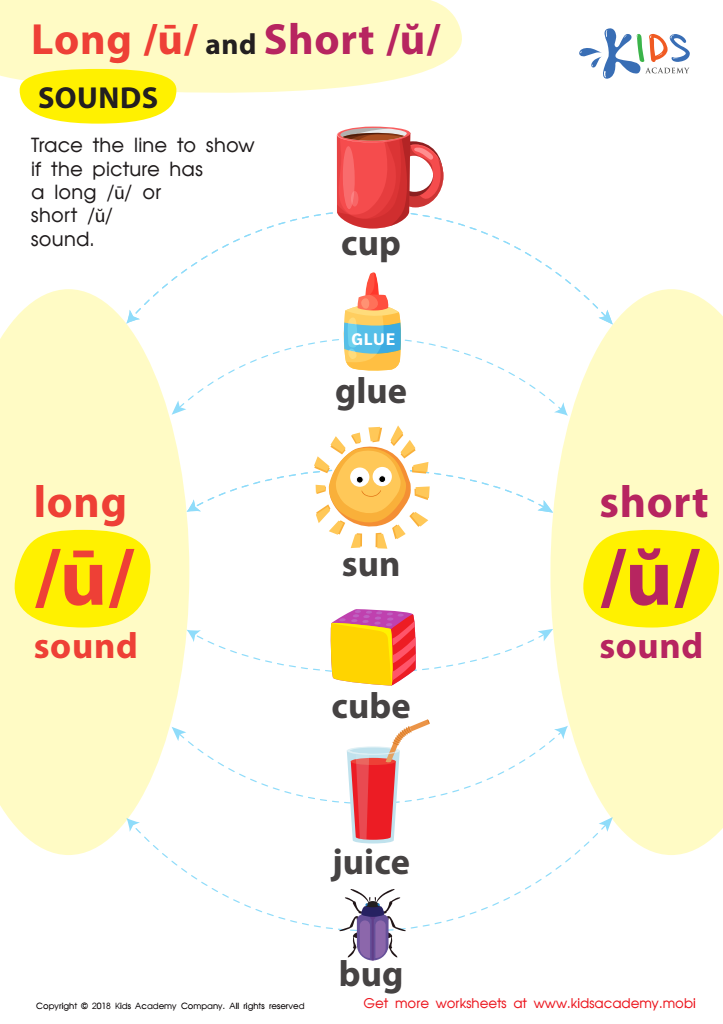

Reading: Long U and Short U Sounds Worksheet


Long Vowel Maze /o/ and /i/ Worksheet
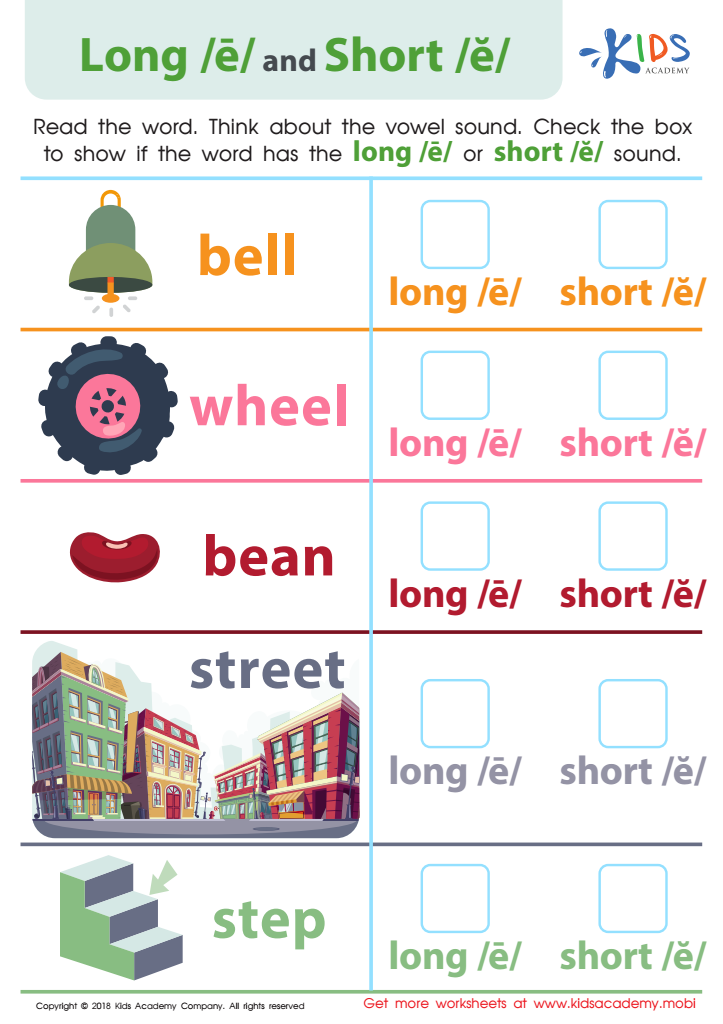

Reading: Long E and Short E Worksheet
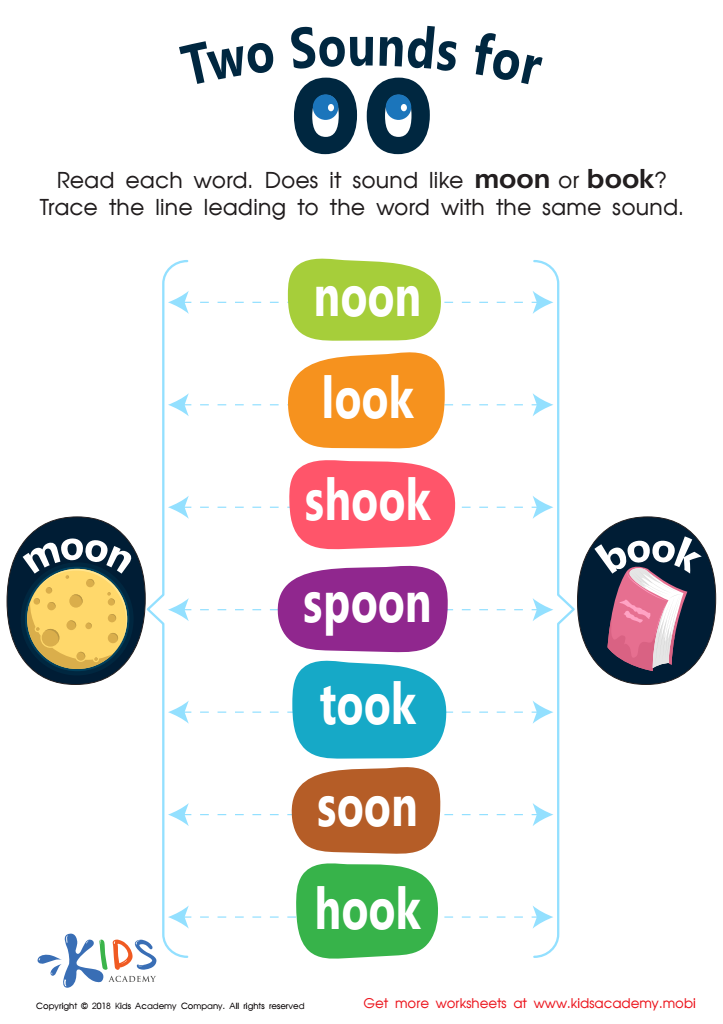

Two Sounds for OO Worksheet
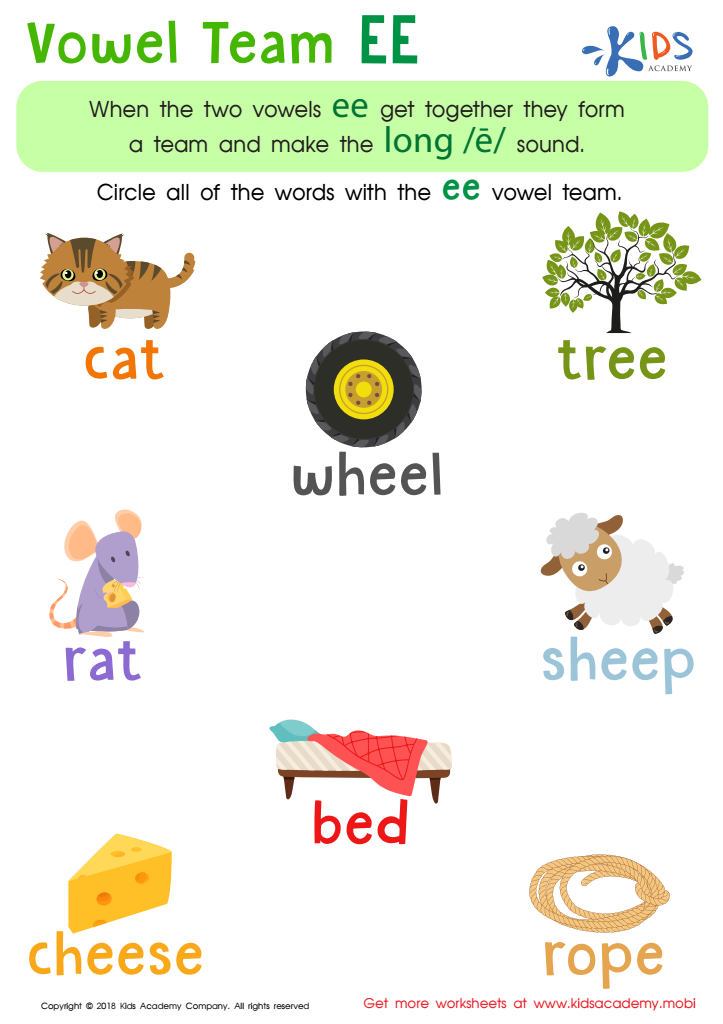

Reading: Vowel Team EE Worksheet
Phonics skills, particularly understanding long and short vowels, are crucial for children ages 7-8 as they transition from recognizing letters and sounds to developing fluent reading abilities. Long and short vowel sounds are foundational building blocks in the English language. When children grasp the difference between these sounds, they can more effectively decode words, leading to improved reading accuracy and comprehension. For example, understanding the difference between the short vowel in "cat" and the long vowel in "cake" helps children adapt their pronunciation and meaning in various contexts.
This developmental stage is critical as it lays the groundwork for more advanced literacy skills. Proper phonics instruction enhances children's ability to spell words correctly and boosts their confidence in writing and reading. It also plays a crucial role in helping children develop critical listening skills, which enhance their ability to understand rhymes, syllables, and ultimately broader linguistic patterns.
Parents and teachers investing time in reinforcing these skills support children's academic success, foster a love for reading, and equip them with essential tools for lifelong learning. Attention to phonics at this stage ensures students build a strong literacy foundation, which contributes to better educational outcomes and improved communication skills.

 Assign to My Students
Assign to My Students











